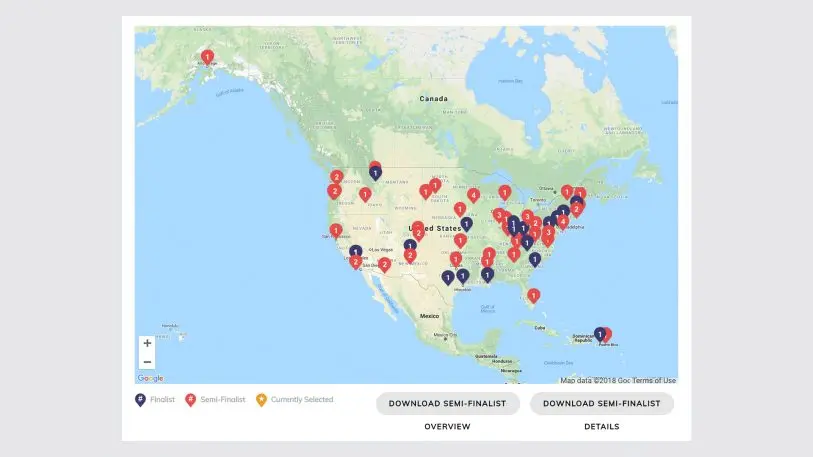In mid-September, the Chan Zuckerberg Initiative announced the finalists of its Communities Thrive Challenge: 20 community groups that focus on expanding economic opportunity for low-income and financially insecure people are now competing for part of a $10 million purse that’ll ultimately be split evenly between 10 winners. The ultimate goal is to figure out what’s working in needy areas, and then help successful nonprofits scale that approach elsewhere.
That format should sound familiar. The charitable competition model has taken off in recent years, with Bloomberg Philanthropies, the MacArthur Foundation, and the Rockefeller Foundation using it was a way to encourage city leaders to improve urban life or build more resiliency.
For this effort, CZI partnered with Rockefeller–both have put up an equal amount of money—with an agreement to share lessons as they go.

“We wanted to learn about organizations, approaches, and practices that were not already on our radar,” says CZI spokesperson Jessica Santillo in an email to Fast Company. “Too often, community leaders who are doing innovative, impactful work–especially outside of New York, San Francisco, and other cities–are overlooked and don’t get the support they need to scale.”
For CZI, it’s a good way to speed their learning curve on social justice issues, especially since the company’s ambitions are exceptionally broad and include other goals, including eradicating disease and reforming education. “Finalists range from organizations like the South Carolina Community Loan Fund in Charleston, which finances local projects to transform and revitalizes communities, to the Texas Organizing Project in Houston, which works to dismantle barriers that have held back communities of color and working families in Texas,” the group writes on their website. By bundling these approaches around economic opportunity, the total donation can attack many problems that are sometimes interrelated–from the bias of the criminal justice system to affordable housing initiatives and empowering immigrants–all at once.
The Communities Thrive Challenge began earlier this year with a call for submissions based on four criteria: impact, potential for scale, a community-informed approach to problem solving, and good leadership (in this case, that means a strong track record of success and ideally that those in charge represent the community they serve). More than 1,800 groups throughout the country applied, and peer reviewed each other, leading to a roster of about 80 semi-finalists that underwent independent evaluations from various impact-minded academics, business leaders, and philanthropists.
Next up, CZI and Rockefeller representatives will visit all finalists before announcing the winner by the end of the year. The goal of competitions like this is generally two-fold: To support extremely strong ideas, and ensure other great ones don’t get lost in the shuffle. To that end, CZI and Rockefeller have created an interactive map that shows the location and links to more information about all of the semi-finalists and finalists selected throughout the process. The 10 finalists that don’t win will also receive $5,000 each.
Santillo says that “one of the goals is to increase awareness of the community leaders and strategies that are working around the country, to foster collaboration as well as additional support for these ideas.”
Recognize your brand’s excellence by applying to this year’s Brands That Matter Awards before the early-rate deadline, May 3.
